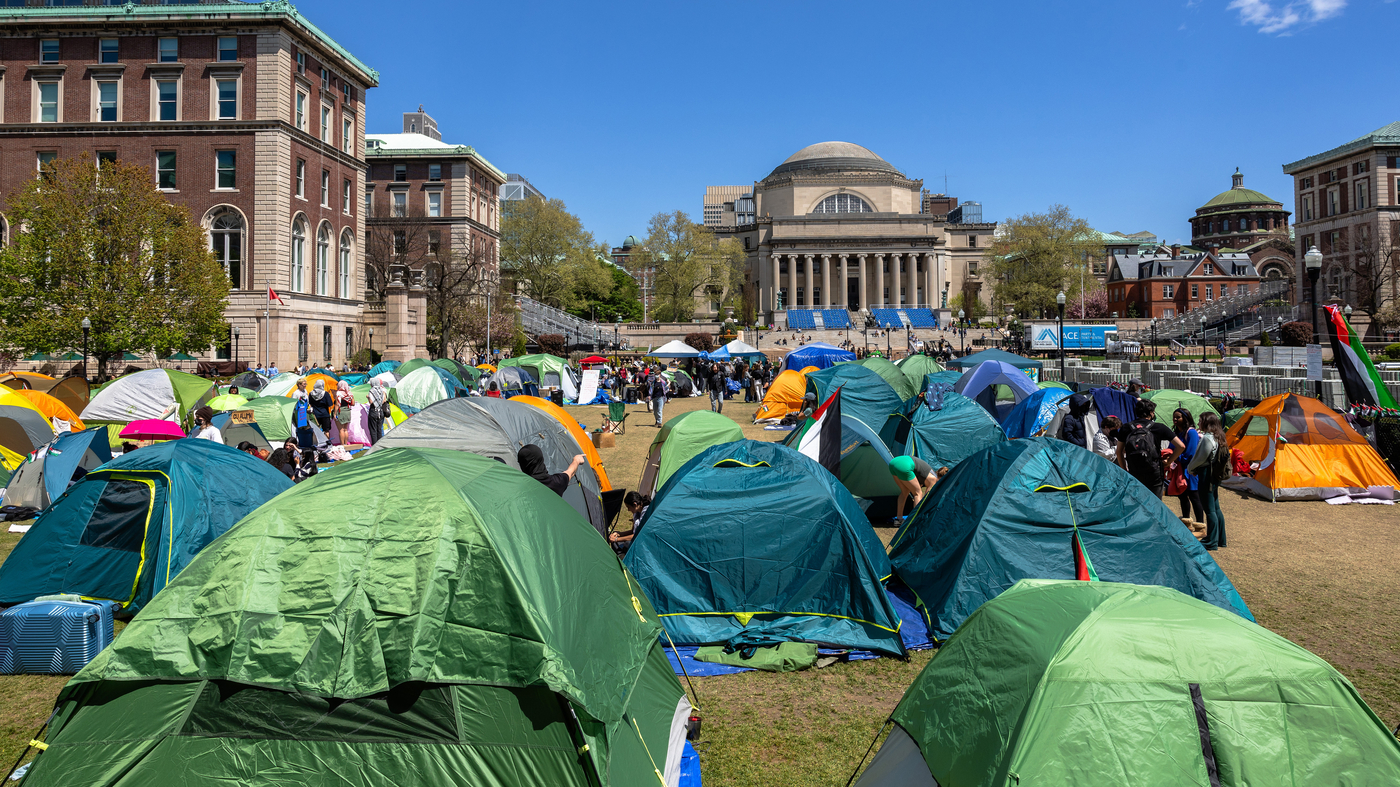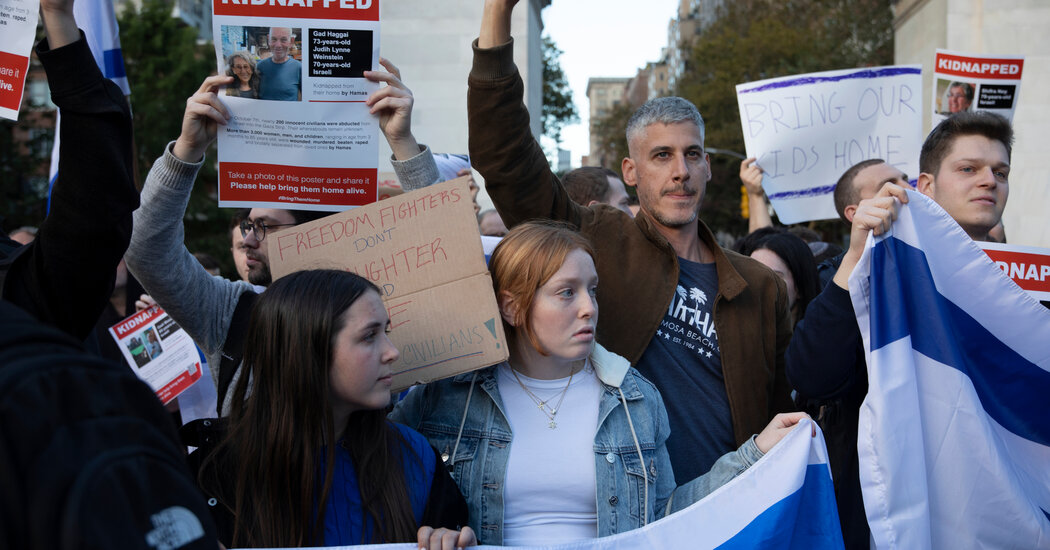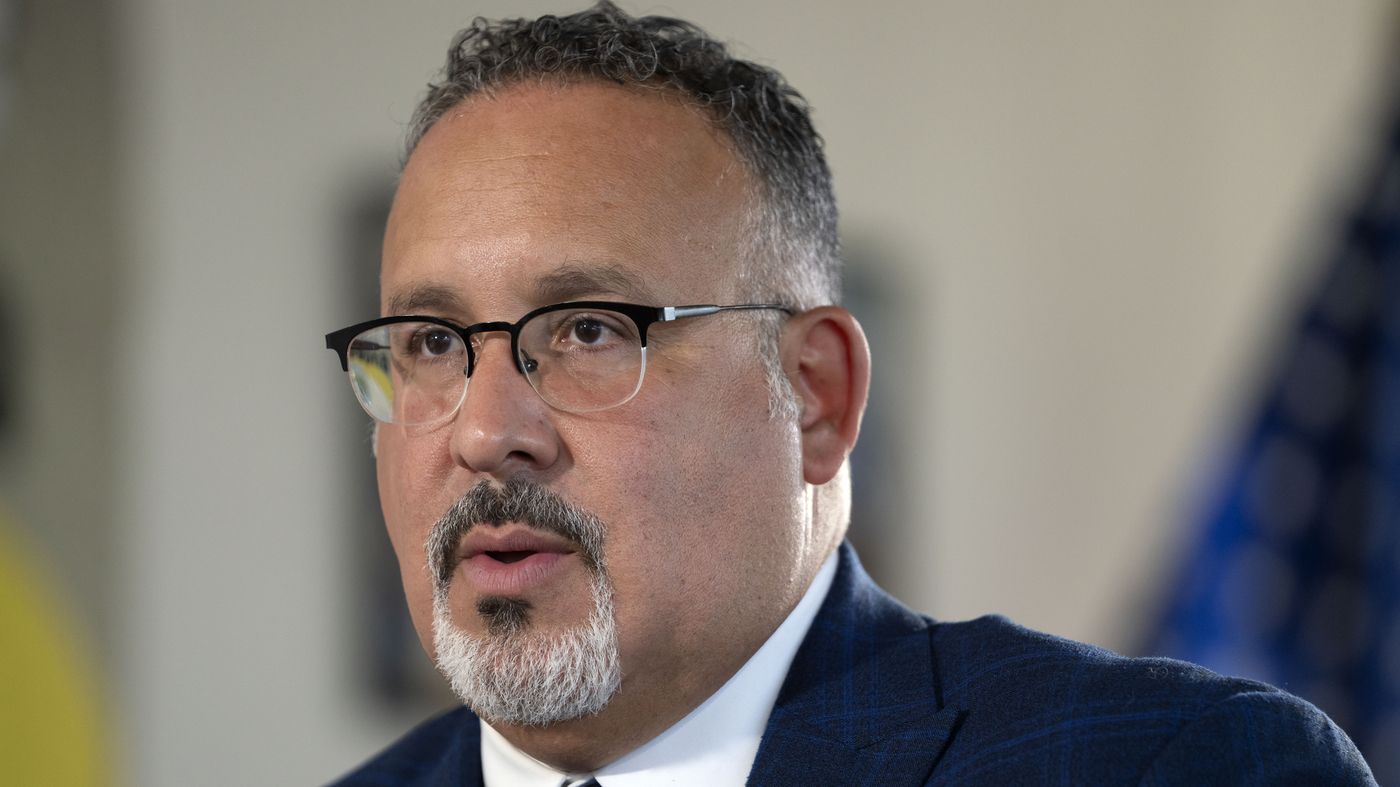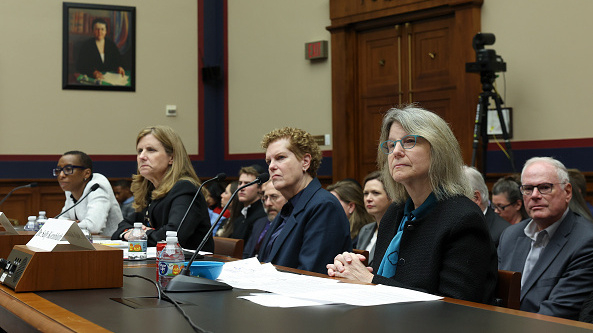The Columbia University Students’ College Graduation Ceremony Changes Schedule During the First Year Class Action against the Israel-Israel War and Public Safety Training Center
An FAQ on Emory’s webpage outlines the school’s expression-related protocols for graduation, which are similar to events that are held on campus.
Gas South District venues have various requirements for security screening, event safety, and guest conduct, according to its website, including prohibiting backpacks and “signs on sticks or oversized signs (no larger than 8 1/2″ x 11″).”
Faculty members physically blocked their way to the protest as police tried to break up the camp and arrest participants, despite a large police presence.
The arts and science faculty passed a no-confidence vote against Fenves, and undergrad students are holding a vote on Monday and Tuesday.
The announcement came after more than a week of student protests against the Israel-hamas war and the construction of a controversial public safety training center.
Columbia is the second major university to cancel part of its graduation ceremony. The University of Southern California announced in late April that it would cancel its main graduation ceremony, several days and considerable backlash after it scrapped its valedictorian speech over security concerns.
Officials at the New York City institution said in their Monday announcement that based on feedback from students, they will prioritize Class Days and school-level ceremonies, “where students are honored individually alongside their peers,” rather than the universitywide ceremony that had been scheduled for May 15.
The Columbia announcement states that the students emphasized that the smaller-scale celebrations are more meaningful to them and their families. They are eager to cross the stage to applause and family pride and hear from their school’s invited guest speakers. We will focus on keeping the school ceremonies safe and running smoothly, as a result of this.
As part of that effort, the university is relocating those ceremonies, which were originally scheduled to take place on the South Lawn — where protesters picketed and camped out in tents for two weeks, calling for an end to war in Gaza and university investment in Israel, until police cleared out campus last Wednesday.
Those ceremonies will move to the Baker Athletics Complex, Columbia’s main venue for outdoor sports. There are events from May 10-16 and tickets are required. Columbia College will hold its ceremony on the morning of May 14, followed by the affiliated Barnard College the next day.
Antiwar Protests and the New York City Students’ “Graduation Ceremony” at Indiana University with a Change in the Graduation Calendar
She wrote to the NYPD on April 30, as police arrived to remove pro-Palestinian protesters who had occupied a building on campus earlier that day. The first time that month, Shafik asked the police to break up protests on the campus.
Nine people were arrested while police cleared the antiwar camp on the day it was set up. Students continued to protest, including reestablishing an encampment on April 29 as they called on the school to divest from weapons manufacturers and companies tied to the Israeli military, and to end study abroad programs in Israel.
The university — which had already shifted to hybrid learning for the rest of the semester — was essentially under lockdown. Police entered Hamilton Hall and arrested protesters. 29% of New York City officials are not affiliated with the school, according to the city.
Columbia’s board of trustees still supports the woman, even though she has faced calls to resign from both flanks because of her handling of the protest.
Other schools are forging ahead with graduation as planned, but expecting — and for some, already experiencing — protests during the day. Over the weekend, students and faculty at Indiana University held an alternate graduation ceremony, while dozens of pro-Palestinian protesters waving flags and banners briefly disrupted the University of Michigan’s graduation.
The graduation ceremony for its nine schools will be held on May 13 instead of May 13 because of the change. The revised calendar shows that graduation events will start on May 10.
University of Minnesota Students Meet the Israeli-Israel War: Breaking the GZK-Israel Agreement and Ending the Israel-Hamas War
The convention center and arena in the Gas South District are where they will be held. It is about 20 miles northeast of Emory’s Atlanta campus and 30 miles northwest of its Oxford campus, according to the university.
“Please know that this decision was not taken lightly,” he added. In close consultation with the police, security advisers, and other agencies, it was decided not to have graduation events on our campuses.
He also praised the Class of 2024 for starting college online after thePonzi interrupted their high school graduations.
As the latest wave of pro-Palestinian demonstrations at U.S. colleges stretches into a third week, some campuses are seeing rising tensions while others have gone relatively quiet.
The University of Minnesota Twin Cities campus reached an agreement with protesters on Thursday, capping off a tumultuous few weeks.
Protesters’ demands vary by school, though they generally call for an end to the Israel-Hamas war, disclosures of institutional investments and divestment from companies with ties to Israel or that otherwise profit from its military operation in Gaza.
Northwestern and Brown were the first schools to announce agreements last week, followed quickly by others including Rutgers, Johns Hopkins, the University of Minnesota and the University of California, Riverside.
Some administrations, like those at Columbia University and UCLA, ultimately called in police to forcibly take down student encampments. But others managed to clear their lawns of tents without police intervention — through negotiations with student organizers.
The university officials said the deal was open for dialogue to address needs of its sizable Arab, Muslim and Palestinian student body.
A coalition of student groups advocating for divestment from Israel presented 10 demands to the administration. The school agreed to eight of them but declined to divest from companies doing business in Israel and terminate its partnership with Tel Aviv University.
Not all activists are satisfied with the terms of their deals, but many are celebrating the agreements as incremental steps in a long-running fight for divestment that, at many schools, far predates Hamas’ Oct. 7 attack on Israel and Israel’s ensuing response.
“When it comes to the actual momentum that this agreement gives us, I cannot emphasize enough how huge it is,” said Lucas, a Northwestern student who asked to only use his first name because of concerns about online harassment.
That’s the case at Wesleyan University, where President Michael Roth — who previously said the school’s encampment could continue as long as it remained peaceful — warned Thursday that vandalism and reports of harassment could result in legal and disciplinary consequences.
“We don’t want to go down this path unless we have to because we prefer to speak with protesters to find out what we can do to address the war in Gaza,” he wrote. “Recent agreements at Brown University and Northwestern University might show the way.”
The agreement allows peaceful demonstrations on Deering Meadow through June 1, only for members of the Northwestern community. The university also pledged to reestablish its Advisory Committee on Investment Responsibility this fall, with representation from students, faculty and staff.
It will also fund the cost of attendance for five Palestinian students and provide temporary space for Muslim and Jewish students in a process to ensure additional support.
Some Jewish groups are upset with the terms of an agreement which they say leaves Jewish students feeling unsafe. The school is being sued by two groups, one of which is an anti-affirmative affirmative action group.
Schill’s decision not to consult with the President’s Advisory Committee on preventing Antisemitism and Hate resulted in seven members stepping down.
There are outside groups that have called for Schill’s resignation due to the “reprehensible and dangerous agreement”. The American Jewish Committee accused the college of consorting with a mob which has intimidated Jewish students, antisemitic, hate-filled speech and whose members have celebrated Hamas terrorists.
Schill, who is Jewish, defended his agreement in a video onApril 30 after seeing a poster depicting him with devil horns. And he told Here & Now that the ban on tents and megaphones aims to make Jewish students feel more safe on campus.
“I do take issue with calling our students a mob,” he added. “They’re students, they’re young, they’re sometimes naïve, they’re learning — and so the best way for us to engage and achieve our educational mission is for us to engage in dialogue with them.”
Several student groups who participated in the protest issued statements of their support for the deal and promised to keep fighting.
It turns out that some have followed up on one promise of the agreement, as they’ve requested more information about their investments in companies that are related to Israel, and they expect a response within 30 days.
Brown University President Christina Paxson announced an agreement between the administration and student protesters on April 30, six days after they began their encampment on its Providence, R.I., campus.
“Students agreed to end the encampment and refrain from further actions that would violate Brown’s conduct code through the end of the academic year, which includes Commencement and Reunion Weekend,” she said.
Students with the Brown Divest Coalition had two central demands for the university, Isabella Garo told All Things Considered. She was one of the six students involved in negotiations with two administrators.
The university corporation voted to approve the recommendation of the 2020 advisory committee toDivesy from Israeli Occupation. The charges were dropped against 41 students arrested at the December sit-in.
Per the agreement, students cleared out of their encampment by 5 p.m. that day. In exchange, the Corporation of Brown University will invite five students to speak with a group of five of its members — including the chair of the investment committee — about the 2020 report during its May meeting.
There will be no addition to its May agenda. But separately, Paxson will request an advisory committee provide her with advice on divestment by Sept. 30 and put it on the agenda for the corporation’s October meeting.
“I feel strongly that a vote in October, either for or against divestment, will bring clarity to an issue that is of long-standing interest to many members of our community,” Paxson said in the announcement.
She stated that some people are relieved that there is more than one way to vote. Some of the people who didn’t like the protests are relieved that the campsite is gone. There’s also some people who have expressed some disappointment — they wanted to see divestment outright.”
The next step for student activists, she said, is mobilizing in the lead-up to the October corporation. She won’t be on campus in the fall to help, because she doesn’t know yet what that will look like.
After a rally on April 29 caused the school to delay many final exams, it gave protesters a deadline to take down their camp or be arrested.
The revised proposal was accepted by student organizers after the administration offered it within an hour of the deadline. Just in time, they began clearing their tents.
What We Can Learn From 4 Schools that Have Reached Agreements with Gaza Demonstrationers (aka:gaza collelege-protest-deal-brown-rutgers)
Chancellor Faulkner said the decisions fall outside of the administrative scope. “However, following our established university policies, the divestment request is under review.”
Rutgers did agree to accept 10 displaced Palestinian students on scholarship, develop a plan for an Arab Cultural Center on campus, explore scholarly exchanges with a university in Ramallah and consider creating a Department of Middle East Studies, to name a few.
The agreement doesn’t have unequivocal support: The New Jersey regional director of the American Jewish Committee condemned it as “short-sighted” and a “capitulation.”
But the Endowment Justice Collective said in an Instagram statement that it was proud of what it had achieved — without student arrests or suspensions — and determined to keep working towards its divestment goals.
They wrote that their decision to end the campsite without achieving any of the demands reflected their strategic logic, which was to build power on the Rutgers campus and shift the political climate there.
University officials announced that day that some campus buildings would remain closed amidst protests. A dozen buildings remained closed as university officials offered to meet with the leaders of the student groups involved in the protests.
Organizers met with administrators on Wednesday, the last day before final exams started, and described the conversations as productive. Before the night ended, they had reached an agreement.
After the agreement was signed, Interim President Jeff Ettinger said that the buildings would reopen at noon, student organizers wouldn’t disrupt finals and the representatives would be able to address the regents at their May 10 meeting.
By May 17 the administration will have to provide some information about the university’s holding in public companies, and it will also consider setting up program affiliations with Palestinian universities.
Source: What we can learn from 4 schools that have reached agreements with Gaza protesters
UMN Divest Coalition Announces Progress in Its Discussion of the Planned EMN Protocols on Social Networks
He said their original meeting was scheduled for 30 minutes — but the participants “engaged in constructive conversation” for more than 90 minutes, and then met two more times to discuss the proposed agreements.
We regret that they did not occur sooner, and have committed to regular meetings moving forward to discuss the concerns of the coalition.
He is happy that the initial progress is being made, but there is more to be done. The UMN Divest Coalition made a similar vow on the social networking site.




